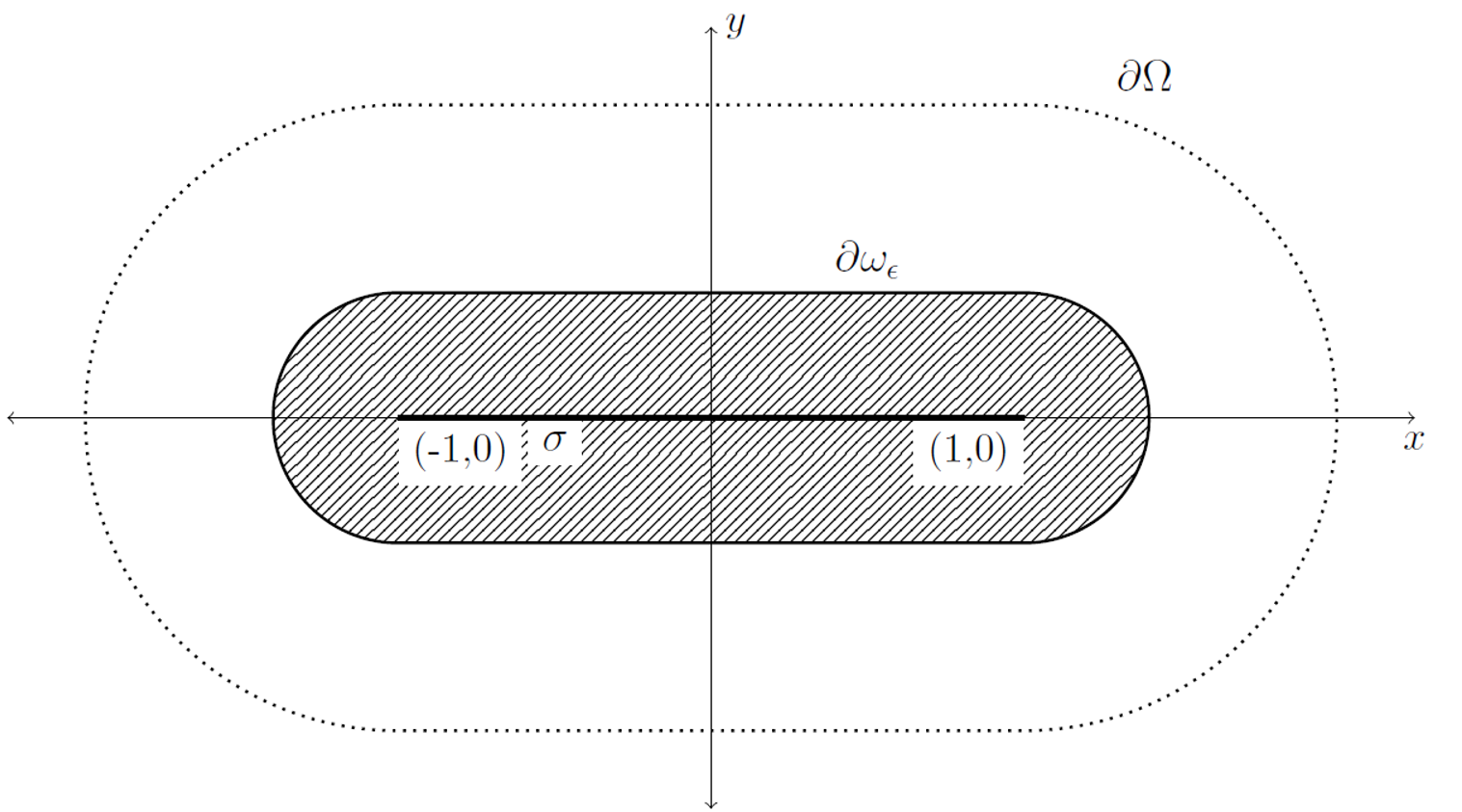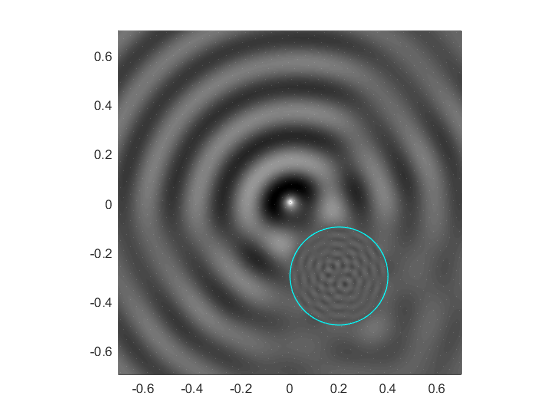Thesis Research
My thesis research was analyzing the conductivity problem in the case of thin inhomogeneities. In particular, I was looking at the case of a thin inhomogeneity with an open mid-curve and looked at the singularities that could develop around the endpoints of this curve. It turns out that these play a role in the analysis of the problem, but similar results to the case of a closed mid-curve can still be shown.

